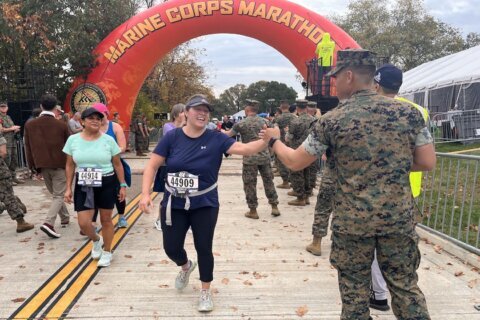
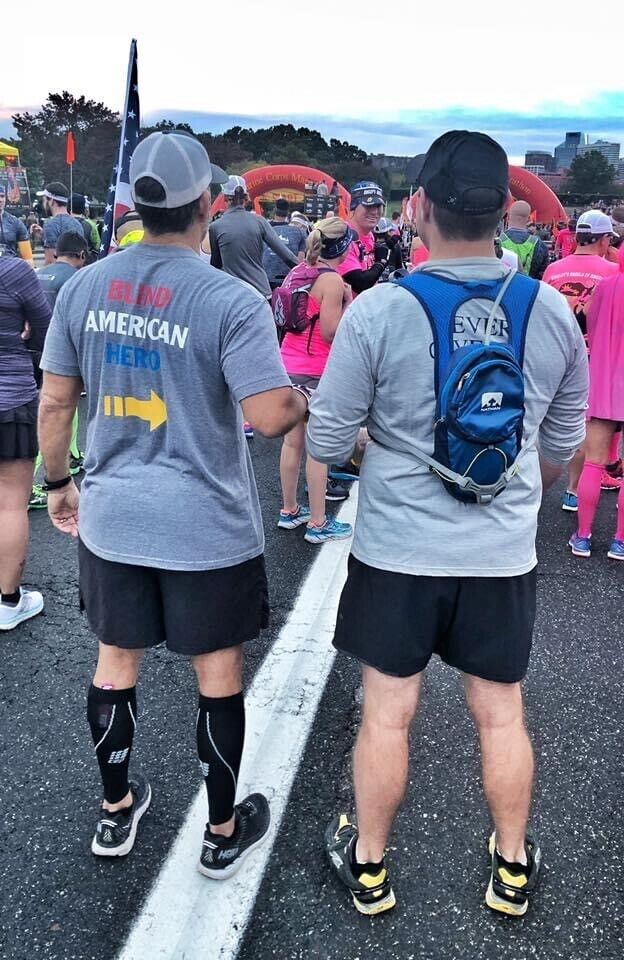
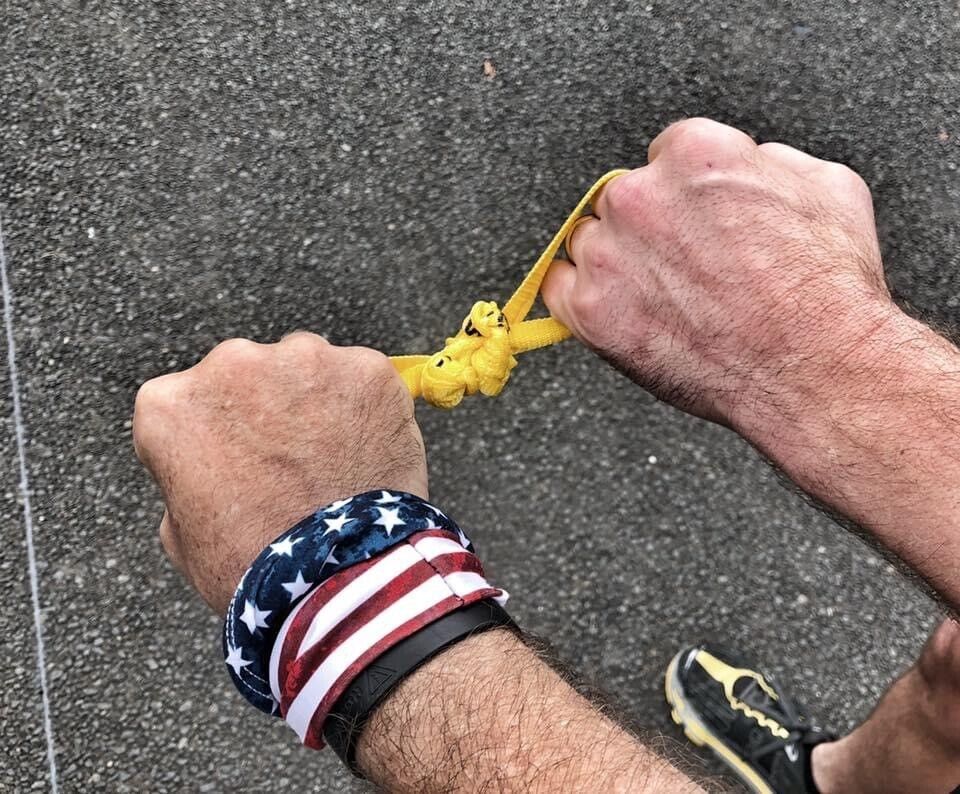

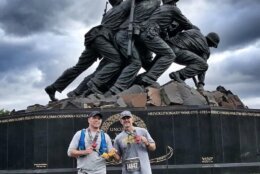
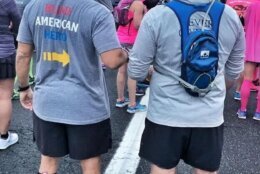
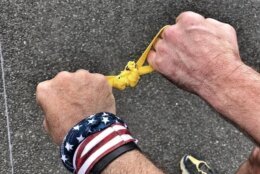
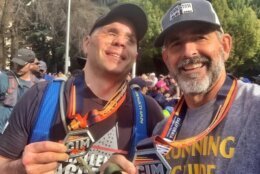
The marathon is often thought of as a solo endeavor, but that’s not the case for two men who will run the 26.2 miles of the 48th Marine Corps Marathon in the D.C. area later in October.
Aaron Hale, a Navy veteran who is blind and deaf, is running the race on Oct. 29 with his running guide Frank Fumich.
“Instead of starting pistol, they fire a real gun. And then somebody says, ‘Take the hill’ and that gets my military blood up,” Aaron Hale told WTOP from his Florida home.
He was joined in the call by Fumich, a McLean, Virginia, business owner.
Hale served as an explosive ordinance disposal tech. In 2011, while on tour in Afghanistan, an IED detonated near him, taking his sight. After a battle with bacterial meningitis, he lost his hearing as well and now uses a cochlear implant.
“I started running in general just out of sheer terror of being stuck on the couch for the rest of my life,” Hale said.
He registered for four marathons, including the Marine Corps Marathon, and a 10-miler before even completing anything more than a 10K race.
“The Marine Corps Marathon became the first one that I actually finished. And I just loved it,” Hale said.
“It really is a good first-time marathon,” chimed in Fumich. “There’s lots of people cheering for you. The Marines do a great job.”
Hale’s times from the races qualified him for the Boston Marathon, and for that race, he needed a new guide. His running coach suggested Fumich.
He reached out to Fumich telling him he was hoping to reach a 4-hour pace.
“He’s like, ‘Well, I haven’t run for speed a long time,'” Hale said. “In the back of my mind, I’m thinking, ‘Who is this guy?’ Then I looked him up, and I found his rap sheet as one of the world’s craziest endurance racers.”
They ran the Boston Marathon together, and then later, a 50-mile ultramarathon in Albany, Georgia.
“Everything in my life is has become a team sport,” Hale said. “It’s really great to be able to run shoulder-to-shoulder with somebody moving the same direction toward a common cause, a common mission.”
When Fumich and Hale race together, they are bound by an inches-long tether.
“When you’re guiding someone, you’re obviously their eyes,” Fumich said. “You’re constantly having to scan 10 feet in front of you. I have to make sure Aaron’s not going to trip, and if there’s a little bump, count down 3, 2, 1 and let him know to lift up his feet.”
Fumich said he often has to steer with nonverbal prompts because while Hale has a cochlear implant, communication is difficult with tens of thousands of people cheering along the route.
“We work as a pretty good team. In about four races, we’ve only gone down once together,” Fumich joked.
Hale has run more than a dozen marathons and completed his toughest challenge as a runner this summer: The Badwater 135, a grueling 135-mile race from California’s Death Valley to Mount Whitney.
“It’s considered ‘the toughest race on the planet,’ and it’s certainly up there among them,” said Fumich who has also finished the race. “Aaron became the first blind and deaf athlete to complete it, which is just unbelievable.”
Hale said he took a few weeks off to “let my toenails start growing back.”
Hale was about to miss this year’s Marine Corps Marathon because he did not sign up in time, but Fumich contacted the organizers and told them Hale’s story. He immediately got a response saying Hale would have a spot.
“They can’t do that with everyone, but they saw the special need with him and how he much he sacrificed for us,” Fumich said.
The Marine Corps Marathon is near and dear to Fumich, as well — it was both his first and 100th marathon.
“My dad was a World War II veteran, and he and my mom are buried at Arlington National Cemetery,” Fumich said. “So for me, it’s super special to just walk into the finish line — I get to look over at the cemetery and sort of talk to my parents.”
Fumich said that guiding Hale was a small way he could give back to the men and women who served in the military and honor his family’s legacy, too.
“Just a tiny, tiny, tiny way, considering Aaron has sacrificed so much for us. It just makes the race much more meaningful,” Fumich said.
On why he always comes back to the Marine Corps Marathon, Hale joked, “I do it for Frank,” sending both laughing.
WTOP wants to know why you’re planning to run and what is motivating you to train for this event. WTOP will choose some of these stories to feature in an upcoming on-air and online special report. If you or someone you know has an interesting story to tell, tell us about it.




